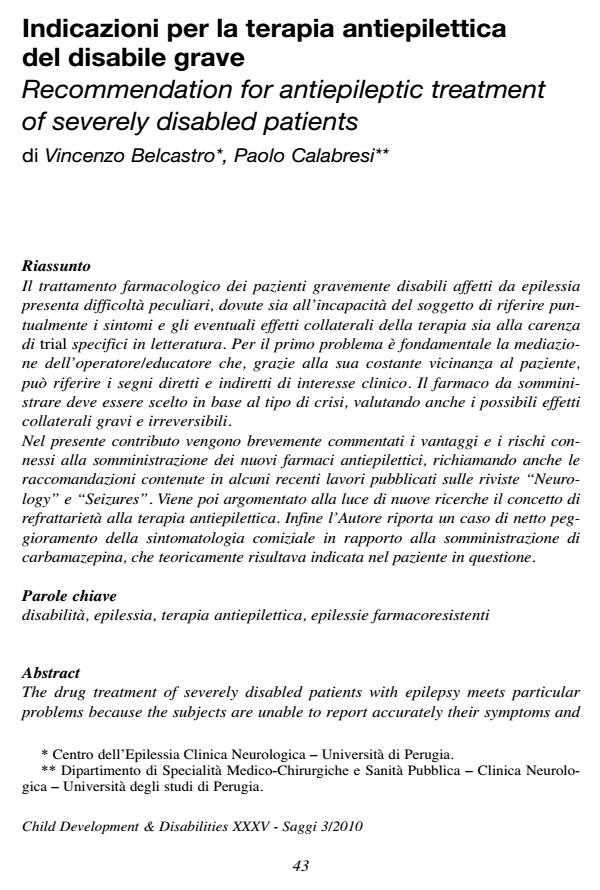Recommendation for antiepileptic treatment of severely disabled patients
Journal title CHILD DEVELOPMENT & DISABILITIES - SAGGI
Author/s Vincenzo Belcastro, Paolo Calabresi
Publishing Year 2012 Issue 2010/3
Language Italian Pages 6 P. 43-48 File size 60 KB
DOI 10.3280/CDD2010-003007
DOI is like a bar code for intellectual property: to have more infomation
click here
Below, you can see the article first page
If you want to buy this article in PDF format, you can do it, following the instructions to buy download credits

FrancoAngeli is member of Publishers International Linking Association, Inc (PILA), a not-for-profit association which run the CrossRef service enabling links to and from online scholarly content.
The drug treatment of severely disabled patients with epilepsy meets particular problems because the subjects are unable to report accurately their symptoms and the possible side effects; furthermore, there is a lack in literature of specific trials. For the first question, the presence of the professional/educator is needed. He is able to report direct and indirect signs of clinical importance, thanks to his continuous contact with the patient . Drugs have to be chosen according to the type of crisis, considering the side effects, that could be severe and irreversible. The paper takes also into account pro and contra of the new antiepileptic drugs, drawing attention also on recommendations reported in some recent works published in "Neurology" and "Seizures". Considering some new researches it also discusses the refractoriness to antiepileptic therapy. The author reports a case of worsening of the epileptic symptoms linked to the use of carbamazepine that in principle was considered suitable for that patient.
Keywords: Disability, epilepsy, antiepileptic therapy, drug-resistant epilepsies
Vincenzo Belcastro, Paolo Calabresi, Indicazioni per la terapia antiepilettica del disabile grave in "CHILD DEVELOPMENT & DISABILITIES - SAGGI" 3/2010, pp 43-48, DOI: 10.3280/CDD2010-003007